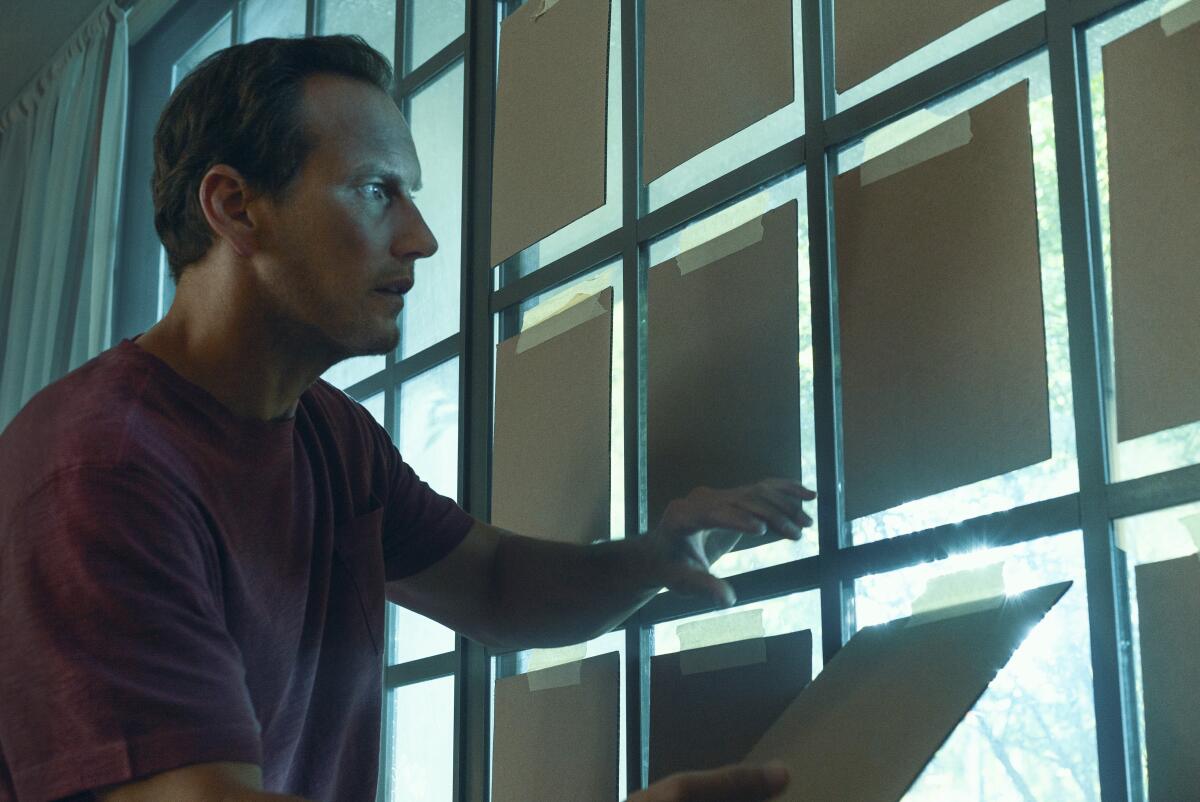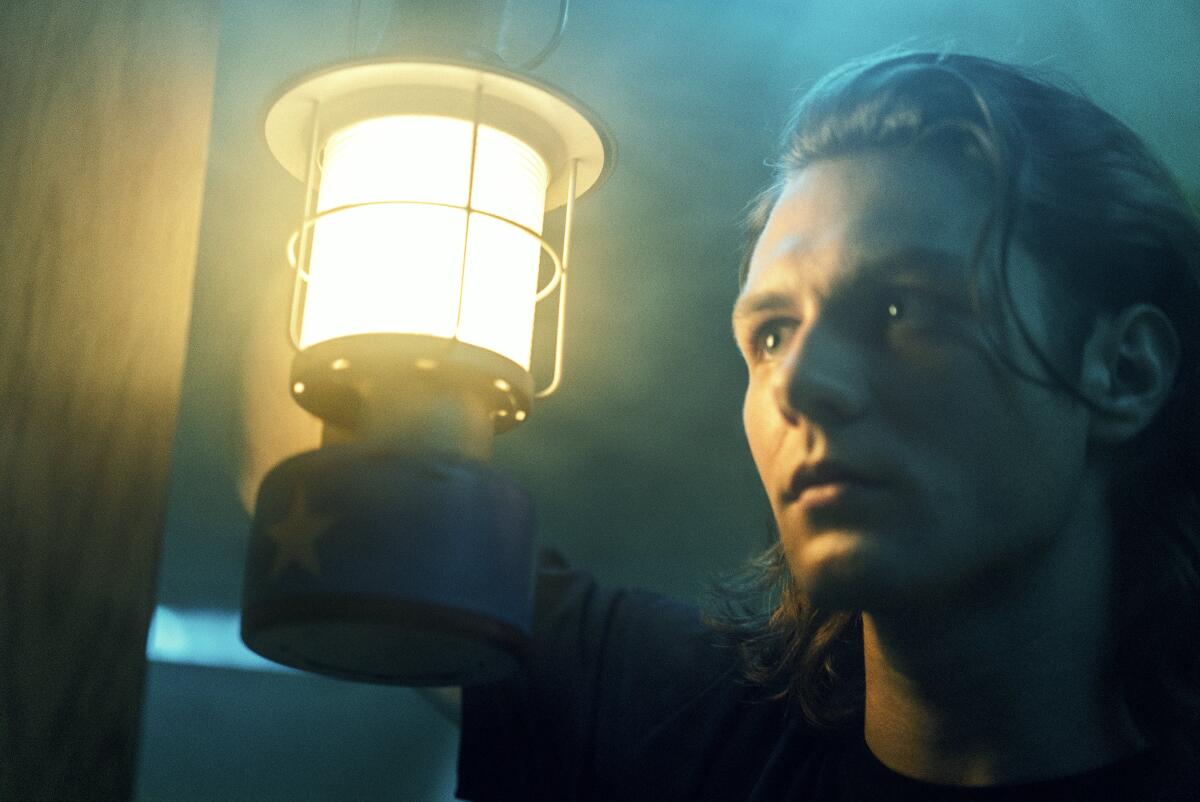Review: âInsidious: The Red Doorâ is sometimes unnerving, but even evil has an expiration date

Director James Wan and screenwriter Leigh Whannell have had a massive impact on modern horror movies, not once, but twice: first with 2004âs âSaw,â which set off a wave of torture-heavy splatter films; and then with the atmospheric 2010 film âInsidious,â a crafty tale of paranormal intrusion. Over the last decade, âInsidiousâ has proved especially influential, inspiring dozens of movies about haunted objects, creepy kids and grizzled paranormal investigators â all of them filled with slow-mounting tension and assaultive jump-scares, many of them spawning entire universes of sequels, prequels and spinoffs.
âInsidious: The Red Doorâ is the fifth film in its series, and it seems at times like a conscious effort to remind everyone whoâs the genreâs big boss. Wan isnât involved this time, but Whannell co-wrote the story with the movieâs credited screenwriter Scott Teems, while Patrick Wilson â the star of the original âInsidiousâ and the costar of this one â makes his directorial debut. This team has produced something that maybe relies too much on the same old tricks, but which is often genuinely terrifying.
Wilson once again plays Josh Lambert, who in the first two films discovered that he and his son Dalton (Ty Simpkins) have the ability to leave their bodies via astral projection, thanks to their connection to a purgatorial dimension dubbed the Further, filled with unsettled ghosts and vicious demons who intend to use the Lamberts to help them drain the vitality from living humans. The third and fourth âInsidiousâ films were prequels that only mentioned the Lamberts in passing; but âThe Red Doorâ follows directly from âInsidious: Chapter Two,â which ended with Josh and Dalton being hypnotized to suppress all their memories of the Further.
That cure has turned out to be a curse. Nine years later, severed from an essential part of themselves and their shared pasts, Josh and Dalton have become estranged from each other; and Josh is also now divorced from Daltonâs mother, Renai (Rose Byrne). But when Dalton leaves home to study painting at college, his favorite professor (Hiam Abbass) encourages him to tap into his subconscious, which begins to unlock his powers. At the same time, Josh starts digging into his own past to figure out why heâs such a jerk to the people he loves. The answers shock him â and awaken him, too.

Anyone whoâs seen an âInsidiousâ movie before (or any of the âInsidiousâ knockoffs) knows what comes next. Both Josh and Dalton have their daily lives disrupted by visions of rotting corpses creeping toward them and making demands. From behind the camera, Wilson handles the visual grammar of all this well, though thereâs no reason why he shouldnât. Heâs following a well-established blueprint. Wan (and later Whannell, when he directed the third film) perfected the art of weaponizing negative space on the screen, keeping the audience constantly on edge by threatening to fill the blurry areas around the heroesâ heads with something monstrous.
That trick still works like gangbusters, and âThe Red Doorâ features several sequences that are âwatch through your fingers while slumped down in your seatâ-level scary. (A scene where Josh is playing a game of Concentration with pictures taped to his living room window while an evil spirit slowly approaches undetected is almost unbearably intense.) Having two main characters suffering from hauntings separately works against this movieâs narrative momentum, but it does allow Wilson and Teems to bounce from scare to scare, without much setup â or respite.
âThe Red Doorâ isnât as good as the first âInsidious,â and may actually fall short of several of the âInsidiousâ clones. But itâs no impersonal bit of brand extension. Thereâs a strong idea here about how important it is for an artist â any fully alive human being, really â to confront past traumas instead of blocking them out. Granted, the Lambert boys have to face their fears or thereâll be no horror movie. But the point is still well-taken.
ââââââ
âInsidious: The Red Doorâ
Rated: PG-13, for violence, terror, frightening images, strong language and suggestive references.
Running time: 1 hour, 47 minutes
Playing: In general release
More to Read
Only good movies
Get the Indie Focus newsletter, Mark Olsen's weekly guide to the world of cinema.
You may occasionally receive promotional content from the Los Angeles Times.










